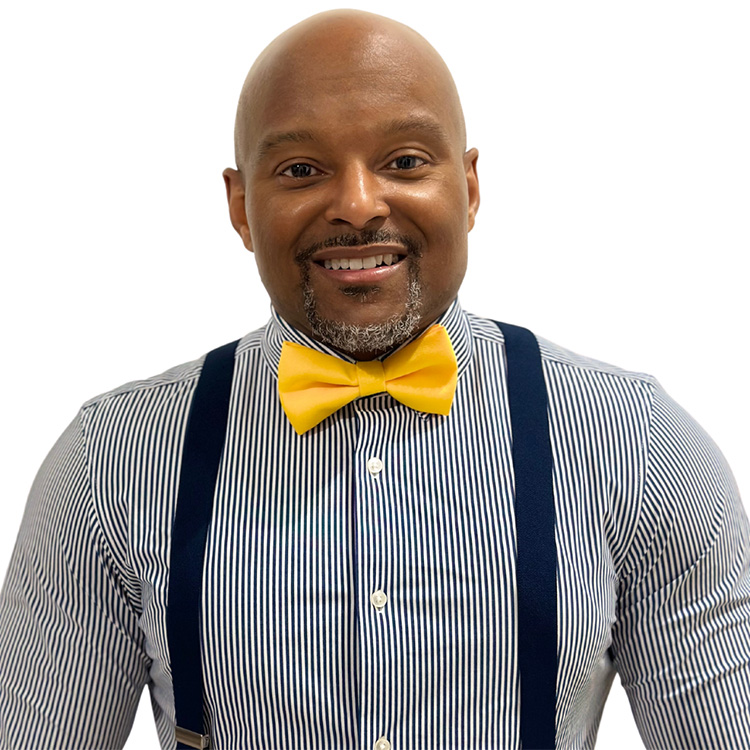Fueling Success: Dean Todd Clark's Vision for Delaware Law and Beyond
9/23/2024

Dean Todd J. Clark
In his second year leading Delaware Law School, Dean Todd Clark brings unwavering energy and a clear vision for the future. As the school continues to build on a foundation of academic excellence, Clark shares insights into his leadership approach, the opportunities ahead, and his commitment to fostering a culture of collaboration, diversity, belonging and practical legal training.
Q: Your energy seems to propel every aspect of your job. Why is this energy so important?
A: It’s infectious. When people see my energy, they tend to mirror it. There’s so much to be excited about at Delaware Law. I truly believe we have the best students and faculty in the country. My goal is to be the best dean, and I want our collective energy to drive us toward achieving the highest bar passage rate—our "regional championship." Every day, I’m excited to be here because I believe in what we can accomplish together.
Q: Your bar-exam mantra, "We will pass the first time," resonates with many. Why is this statement so significant?
A: It encapsulates my purpose as dean. From day one, I realized the culture of success—especially in bar passage—was key. Everything I do aligns with fostering that culture. When students buy into this, it goes beyond words—it becomes a lived reality. It’s not just about passing the bar but cultivating a mindset of excellence in everything they do.
Q: How are you implementing this culture shift?
A: Through constant reinforcement and tangible changes. For instance, we’ve introduced bar boot camps and simulated exams, even for students not yet graduating. Some thought it was too much, but I tell them, “If you stay ready, you never have to get ready.” We’ve also streamlined bar prep programs and created resources for students who need extra support, especially those who didn’t pass before. All of this is aimed at one goal: passing the bar on the first try.
Q: After a year in Delaware, what stands out to you about the Delaware bar and its people?
A: The people are genuine and supportive. I’ve been impressed by the Delaware bar’s dedication to helping others, particularly in enhancing skills. There’s a special collegiality here. Engaging with justices and judges has been a privilege—they’re brilliant but also great people. It’s an amazing community, especially for corporate lawyers.
Q: How do these relationships with the Delaware bar strengthen the law school?
A: You can already see the impact. Our potential move to downtown Wilmington is a result of the strong ties we’ve built. I’d also love to see more of our graduates sit for the Delaware bar because there are many job opportunities for licensed Delaware attorneys. Our connections only strengthen these opportunities.
Q: You're part of the Continuing Legal Education and Admissions Reform, or CLEAR, committee, led by the Conference of Chief Justices and the Conference of State Court Administrators. Over 18 months, CLEAR will review U.S. legal education and bar admissions and recommend reforms to state supreme courts and diversify bar admission processes where appropriate Can you explain its goals?
A: CLEAR explores alternative pathways to licensure beyond the traditional bar exam. We’ve discussed ideas like apprenticeship programs, aiming to create practice-ready lawyers, especially for underserved populations. Through CLEAR, we’re working to enhance access and readiness for all students.
Q: How does your vision align with fostering diversity and accessibility?
A: Diversity is a core value for me. Following the SFFA v. Harvard decision from the U.S. Supreme Court, which deemed affirmative action in college admissions unconstitutional, we were concerned about its impact, but we achieved record levels of racial diversity at Delaware Law. We’ve focused on candidates' experiences and their contributions to the classroom, leading to a deeper, more meaningful evaluation process. It’s something I’m incredibly proud of.
Q: Why do you think law school applications are increasing nationwide?
A: A law degree is increasingly valuable in today’s complex world. Whether in compliance, regulation, or legal expertise, people recognize that legal education equips them with essential tools to navigate and lead in these evolving environments.
